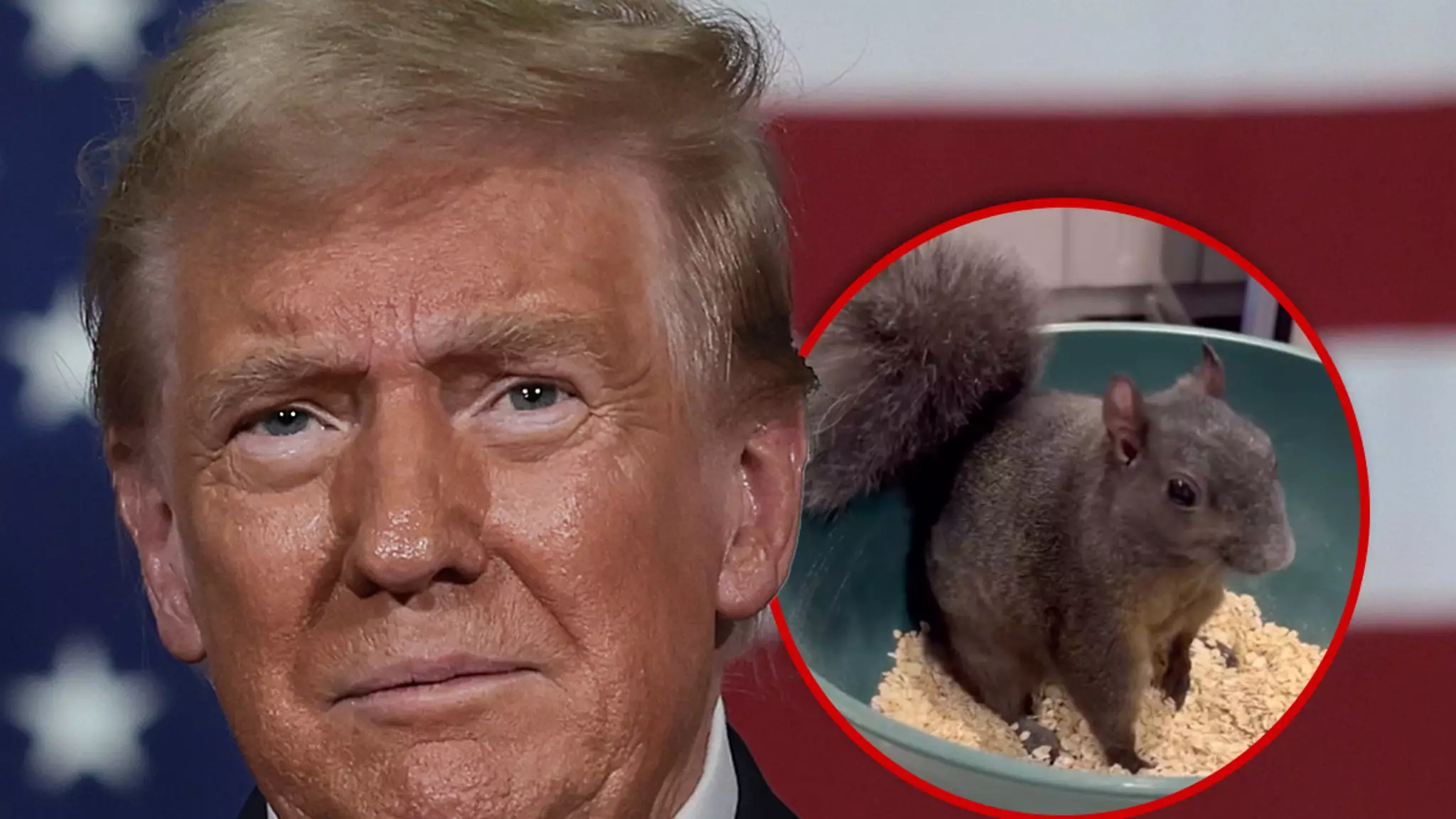This past Saturday, the depths of social media were stirred into chaos when a fabricated press release claimed that former President Donald Trump was vociferously advocating for justice for a beloved pet squirrel named Peanut. Spread widely on the platform X (formerly known as Twitter), this post ignited a wave of reactions, highlighting the absurdity of the announcement. According to reports from TMZ, the statement was nothing more than an elaborate hoax, swiftly debunked by Trump’s spokesperson, Steven Cheung, who confirmed that no such assertion had ever been made by Trump. This incident reveals the rapid dissemination of misinformation in the digital age and prompts a deeper reflection on the role of social media in shaping public narrative.
To truly understand the virality of this incident, one must delve into the context surrounding Peanut and his owners, Mark and Daniela Longo. Peanut was not just any ordinary pet; he boasted a formidable social media following of 532,000 on Instagram. Their story escalated when New York state officials confiscated and subsequently euthanized Peanut due to local regulations prohibiting the ownership of pet squirrels. The Longos, driven by grief and outrage, accused state agencies of misusing their power based on anonymous complaints, which they deemed unjust. They argued that Peanut was integral not only to their family but also to their nonprofit organization, P’Nuts Freedom Farm Animal Sanctuary. Their position has garnered support from many, striking a chord with animal lovers and advocates of pet rights.
The role of social media as a double-edged sword is highlighted by this saga. On one side, platforms like X enable rapid communication and the galvanization of public sentiment, as evidenced by the numerous AI-generated artwork of Trump alongside Peanut that flooded timelines. On the other, the spread of misinformation—like the fake Trump press release—can distort reality and mislead the public. This incident serves as a prime example of how a humorous or outrageous statement can eclipse more serious issues, transforming a tragedy into a sensationalized narrative.
The Aftermath and Cultural Reflections
While Trump’s actual response remains absent, the uproar surrounding this fictitious endorsement raises questions about celebrity influence and the intersection of humor and serious issues in public discourse. The parody surrounding Peanut’s story reflects a broader cultural commentary on how absurdities, often derived from politics, can be exploited for entertainment and engagement. It also sheds light on society’s inclination to rally behind underdog narratives, especially when they involve a heartfelt bond between humans and their pets.
The saga of Peanut the squirrel is a poignant reminder of the rippling effects that misinformation can have in the digital landscape. Even amid the clamor for justice for a small creature, the blurred lines between truth and satire tell a compelling story about modern society’s engagement with both politics and pets. As social media continues to evolve, vigilance and critical thinking become crucial tools in navigating this crowded space.

